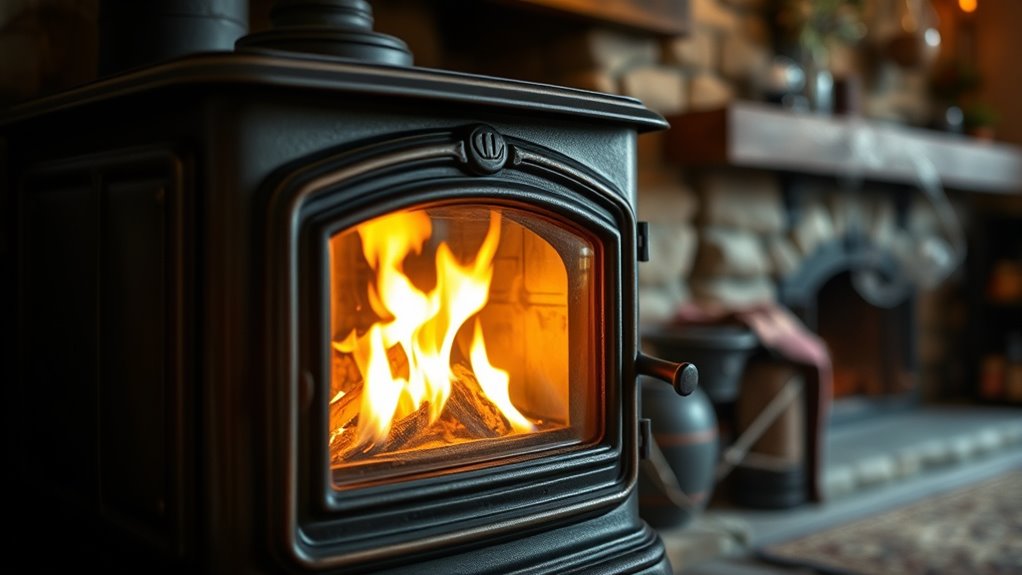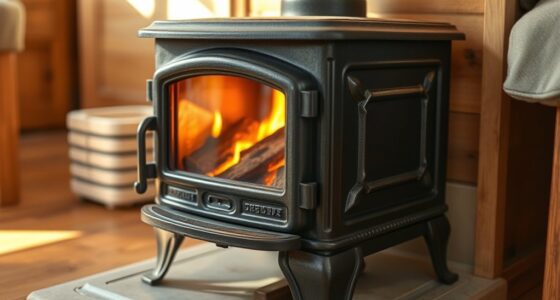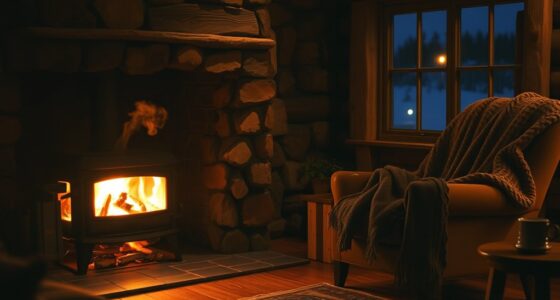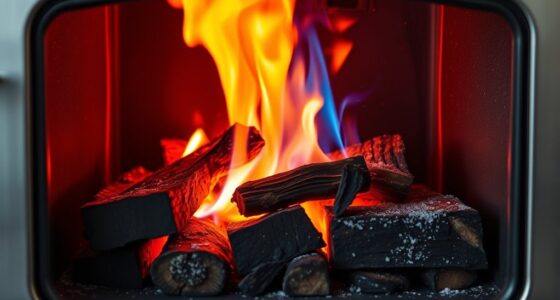You can generally use wood stoves legally if they meet current emission standards and are certified by authorities like the EPA. Regulations aim to limit harmful emissions and improve air quality, so certified stoves are designed to conform with these rules. Be aware that regional differences and local restrictions may apply, especially in urban areas. Continuing to explore will help you understand what’s required to guarantee your stove remains compliant and legal.
Key Takeaways
- Many modern wood stoves are EPA-certified and legally compliant in regulated regions.
- Use of uncertified or older stoves may violate local laws and result in penalties.
- Regulations vary by region, with stricter standards in urban and high pollution areas.
- Authorities may ban or restrict stove use during pollution alerts or high pollution days.
- Staying informed about local regulations ensures legal use and helps support air quality efforts.
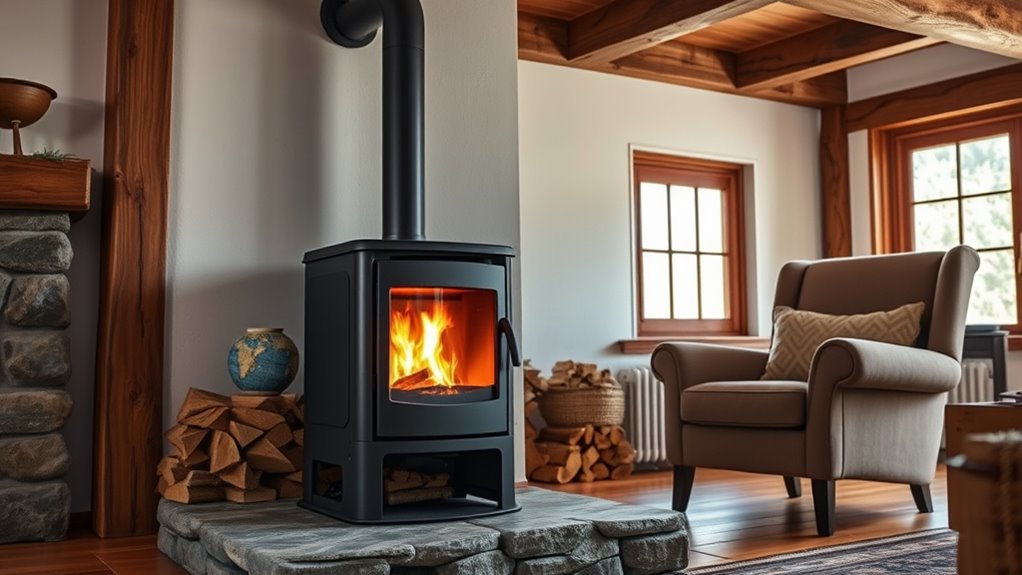
Wood stoves are increasingly subject to regulations designed to reduce air pollution and protect public health. These rules aim to improve air quality by limiting the amount of pollutants released into the atmosphere. If you’re using or considering a wood stove, it’s important to understand how current regulations impact their legality and what standards you need to meet.
In recent years, emission standards have become stricter to ensure that wood stoves do not contribute excessively to air pollution. These standards are set by environmental agencies to regulate the amount of particulate matter and other harmful emissions that a stove can produce during operation. When a stove complies with these standards, it’s generally considered legal to use in areas where such regulations are enforced. However, if your stove falls short of these standards, its use might be restricted or prohibited, especially in regions with poor air quality or during times of heightened air pollution.
The legality of your wood stove hinges on its certification and adherence to these emission standards. Most modern stoves are tested and certified by relevant authorities, such as the Environmental Protection Agency (EPA) in the United States. If your stove bears the EPA certification label, you can be confident that it meets the required emission standards and is legal to operate in areas with strict regulations. Conversely, older or uncertified stoves may not comply, and using them could violate local laws or regulations. Many regions have phased out the use of non-compliant stoves altogether to improve air quality and reduce health risks associated with wood smoke.
It’s also worth noting that regulations often vary depending on your location. Urban areas with dense populations tend to enforce stricter standards because air quality issues are more acute there. Some local governments may even restrict the installation of new wood stoves unless they meet the most current emission standards. Additionally, during air quality alerts or high pollution days, authorities might temporarily ban or limit the use of wood-burning appliances to mitigate further deterioration of air quality. Staying informed about local regulations can help ensure compliance and avoid penalties.
Frequently Asked Questions
Can I Install a Wood Stove Without a Permit?
You generally can’t install a wood stove without a permit because local permit requirements guarantee safe installation and compliance with regulations. You need to follow proper installation guidelines and obtain the necessary permits before starting. Failing to do so could lead to fines or safety hazards. Check with your local building department, as rules vary by area, and always prioritize proper permitting and adherence to installation guidelines for a safe, legal setup.
Are There Specific Safety Standards for New Wood Stoves?
Yes, there are specific safety standards for new wood stoves. You should guarantee your stove meets wood stove safety guidelines, including proper installation and clearances. Additionally, compliance with emission standards is essential to reduce air pollution. Always check that your stove is certified by relevant authorities, like the EPA, to ensure it adheres to current safety and emission regulations, helping you operate your stove safely and responsibly.
Do Regulations Vary Between Urban and Rural Areas?
Yes, regulations differ between urban and rural areas. In urban regions, you face stricter urban restrictions that limit or ban wood stove use due to air quality concerns. Conversely, rural allowances tend to be more permissive, recognizing less impact on densely populated areas. You should check local regulations, as they can vary considerably, ensuring your wood stove use complies with specific rules to avoid fines or penalties.
Are There Restrictions on Wood Stove Emissions?
Yes, there are restrictions on wood stove emissions to protect air quality. You need to follow emission standards set by local and national authorities, which limit the amount of pollutants your stove can emit. These rules aim to reduce air pollution and health risks. Make sure your stove meets the required standards before installation, and consider using EPA-certified models to stay compliant and minimize environmental impact.
How Often Are Regulations on Wood Stoves Updated?
Regulations on wood stoves are updated periodically, often every few years, to reflect advancements in technology and emission standards. You should check with local authorities for specific rules on wood stove permits and current emission standards. Staying informed helps guarantee your stove complies with legal requirements and operates efficiently. Regular updates aim to reduce pollution, so keeping up with changes benefits both you and the environment.
Conclusion
So, as you navigate the forest of regulations, remember that wood stoves are like old friends—welcome in many places, but with rules to keep their fire burning clean. Stay informed, follow local laws, and you’ll keep your cozy haven glowing without stumbling into trouble. Think of regulations as the gentle rain that clears the smoke—helping your wood stove shine responsibly in your home’s warm glow.

